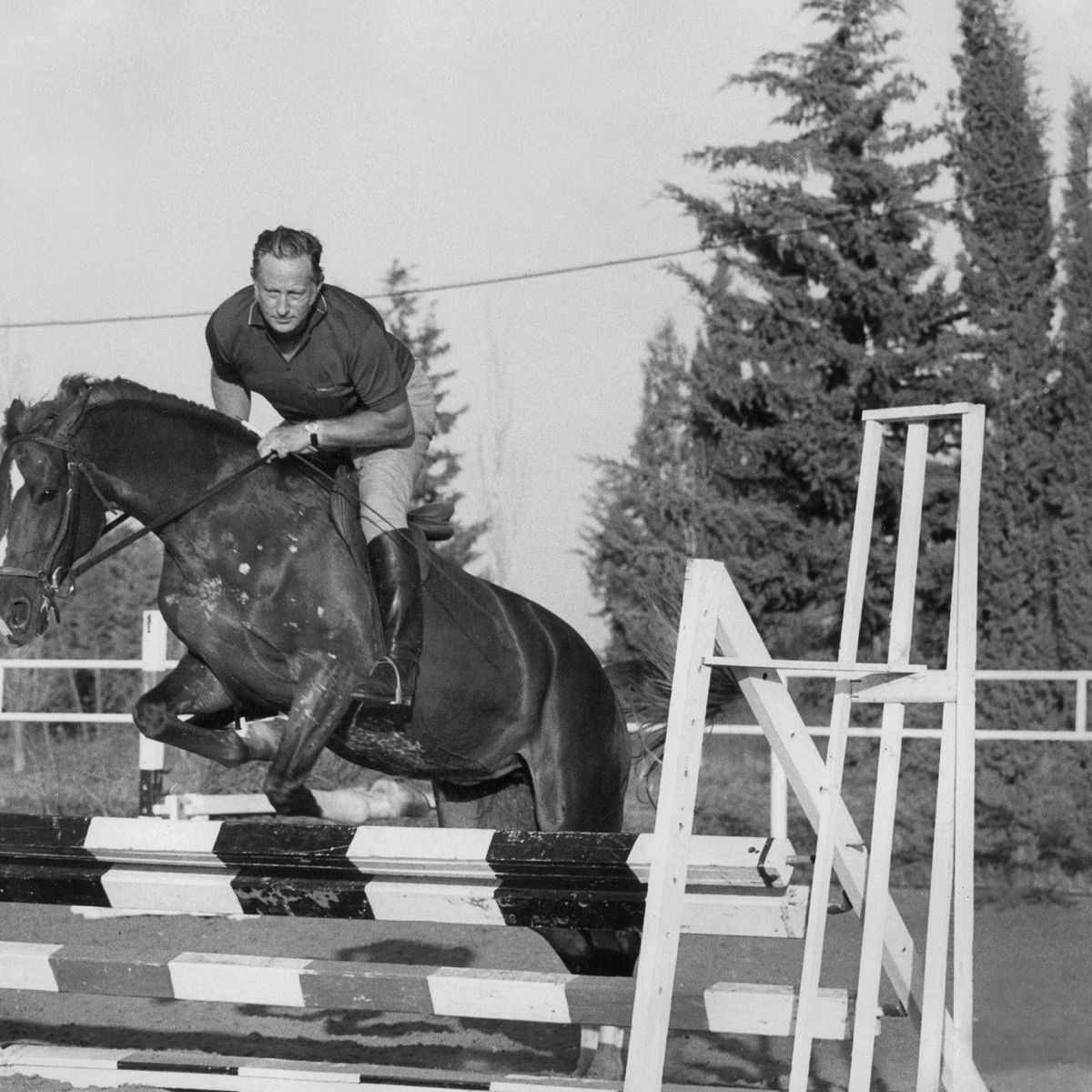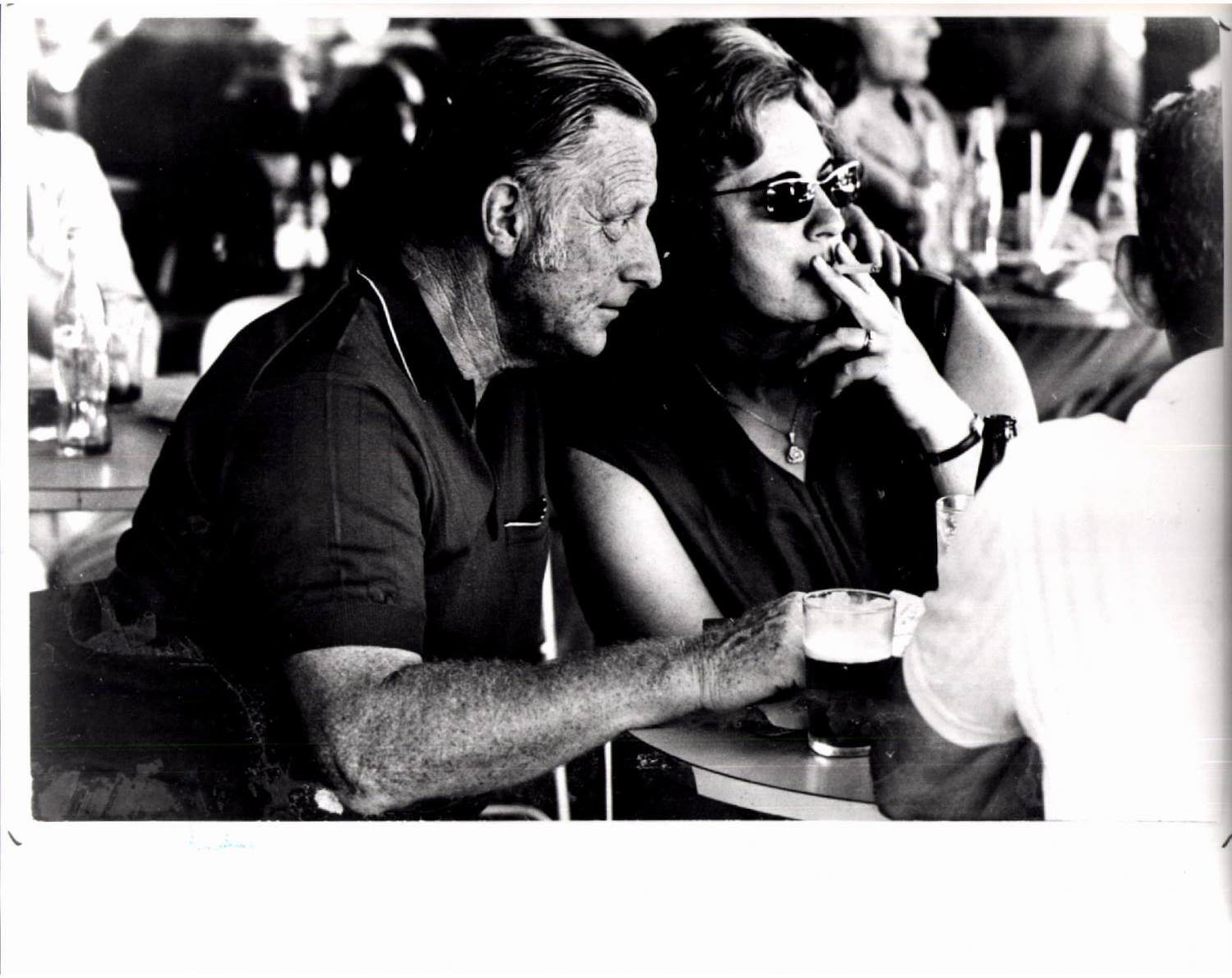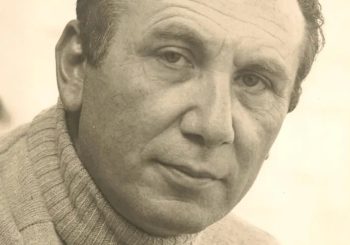On the surface, blond and blue-eyed Wolfgang Lotz – also known as the “Jewish James Bond” or the “Champagne Spy” – lived an extravagant lifestyle as a dashing millionaire playboy who mingled with Egyptian elites and military officials, owned an equestrian club, and was a well-known name among Egypt’s high society.
Yet behind this overly glamorized image was a double life, where Lotz transferred Egypt’s military secrets to Israel, and was responsible for Israel’s victory against Egypt in the 1967 Six-Day War, also known as Al-Naksa (The Setback) for Egyptians.
Looking back at the life of Wolfgang Lotz, it can be difficult to discern fantasy from reality, and truth from lies. What has been revealed of him to the public is merely the crafted story – the achievements, the pitfalls, and a few hints of his personal life.
In his own autobiography, ‘The Champagne Spy’, Lotz crafts his own story and looks at his spy persona through the eyes of an entirely different person. He narrates the making of his spy persona, and how his acting abilities, which were inherited from his parents, enabled him to “play the part” of a “wealthy, charming and generous man with good connections.”
Lotz’s upbringing in Palestine influenced the making of his spy persona, as not only did he grow to love horses, but his life among Arabs in the Ben-Shemen town helped develop his Arabic skills, which came to be vital for his mission in Egypt. In the early pages of his autobiography, he admits to a defining point in his life where he began to live “a double life”, which began after he joined the Haganah, the underground army of the Jewish community in Palestine, and later became the core of the Israeli Defense Forces (IDF) today.

After the state of Israel was created, Lotz began to climb up the ranks in the army, and during the Suez Campaign of 1956, he was company commander in an infantry brigade that captured the town of Rafah in the Negev. But as soon as his military career began to stall, and he grew more distressed and frustrated, he became more willing and open to the possibility of working as a spy for the Israeli Secret Service.
Though at first he expressed his concern about the consequences, he grew confident of his own capabilities as an actor and an Israeli patriot. Since his parents were also not religious, he was not circumcised, and thus it would be easier for him to be passed as a non-Jew.
Around the same time, however, Lotz was also married and had a 12-year-old son, Oded Gur-Arie. His growing appetite to serve the Mossad meant that his family had to pay a heavy price, and at just 12 years old, Oded (Lotz’s son) discoveredthat his father was a secret agent and that he must “swear to secrecy” to never inform anyone. Oded and his mother were forced to travel alone to Paris, and since then, the gulf between Lotz and his family only grew larger, to the extent that it led to a number of psychological hardships for both the family and Lotz.
“Imagine, you’ve been five years undercover, with an unlimited expense account, living high on adrenaline and adventure. Then, suddenly, you’re in a small Tel Aviv apartment and your wife is screaming at you to change the diapers. It’s a tough transition,” filmmaker Nadav Schirman once noted in an interview of his film ‘The Champagne Spy’.
Lotz went on to receive intensive espionage training for several months, and took courses in Egyptian history, politics and culture. To counter former president Gamal Abdel Nasser’s plans in establishing a local armaments industry, Lotz was tasked to collect intelligence on the Soviet arms being supplied to Egypt, identify targets for Israel’s next attack on Egypt, and infiltrate the group of former Nazi rocket and weapons scientists working for Egypt.
Together with the secret agents of the Mossad, the story of his spy persona was crafted: he was a wealthy businessman who lived in Australia as a horse breeder, and came to Egypt to establish an equestrian club.
A childhood fascination with horses became Lotz’s key strength as a spy, as his frequent visits to elite equestrian clubs, such as the famously known Gezira Sporting Club, helped him become associated with the Egyptian elite and top army officers.
He blended in smoothly with Egypt’s high society, so much so that he quickly befriended Brigadier General Fouad Osman, a high Egyptian military intelligence officer who was also chief of security for Egyptian rocket bases and military factories, as well as Hussein El-Shafei, who was one of Nasser’s closest advisors with whom he shared highly significant state decisions.
Through his connections, he was able to not only learn about Egyptian missile launch sites, but also developed a list of scientists working for the Egyptian government. He wrote them threatening anonymous letters, which mentioned the names of their wives and children, and called for them to stop working for Egypt if they valued their lives
Lotz also provided strategic military information to Israel about Egyptian airfields that carried fake planes to manipulate Israeli warplanes into futile attacks. This was regarded as the key piece of information that led to Israel’s victory in the 1967 Six-Day War, which came after the destruction of the Egyptian air force before the planes took off.
His double life quickly came to an end, and soon Lotz had to face a public show trial after he was arrested by Egypt’s authorities in 1965, where he confessed everything about his espionage activities, and that the “Israelis had taken every advantage of him”. Writing in his autobiography, Lotz says that he was captured after a wireless set was found hidden inside his bathroom scale. He was sentenced to life imprisonment as a spy, but was later released in the prisoner exchange in 1968, and then spent the rest of his days in Israel.
It is still unclear as to how he was caught, as there are many different versions of the story, but Lotz, naturally, writes that the trial turned his life into an “exaggerated and tendentious accounts of [his] work” by the press and the world’s media, and that his autobiography is the only “factual account.”
To this day, there is no Egyptian version of Wolfgang Lotz’s story, and it is difficult to find Arabic sources on his life in Egypt and how he skillfully developed close relationships with Egypt’s high society and political officials. From organizing grand lavish parties to regularly attending equestrian tournaments, Lotz gained a reputation among Egyptians as merely a wealthy businessman, and for Israelis, he was called as “The Eye of Tel Aviv in Cairo.”







Comments (2)
[…] […]
[…] […]